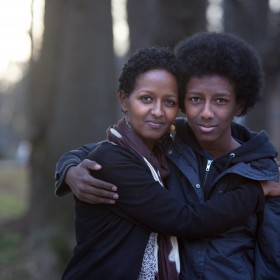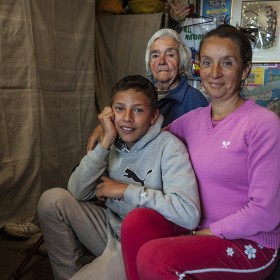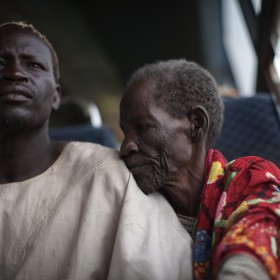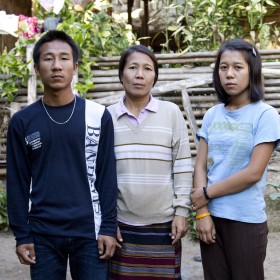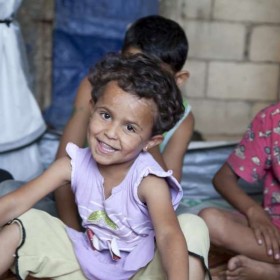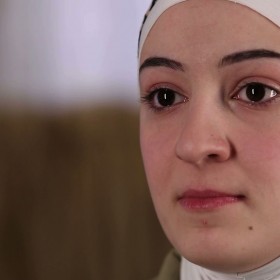Naima Abdullahi’s Story, USA
Naima Abdullahi, 36, with her son Teso, 14, outside their home in Atlanta, Georgia.
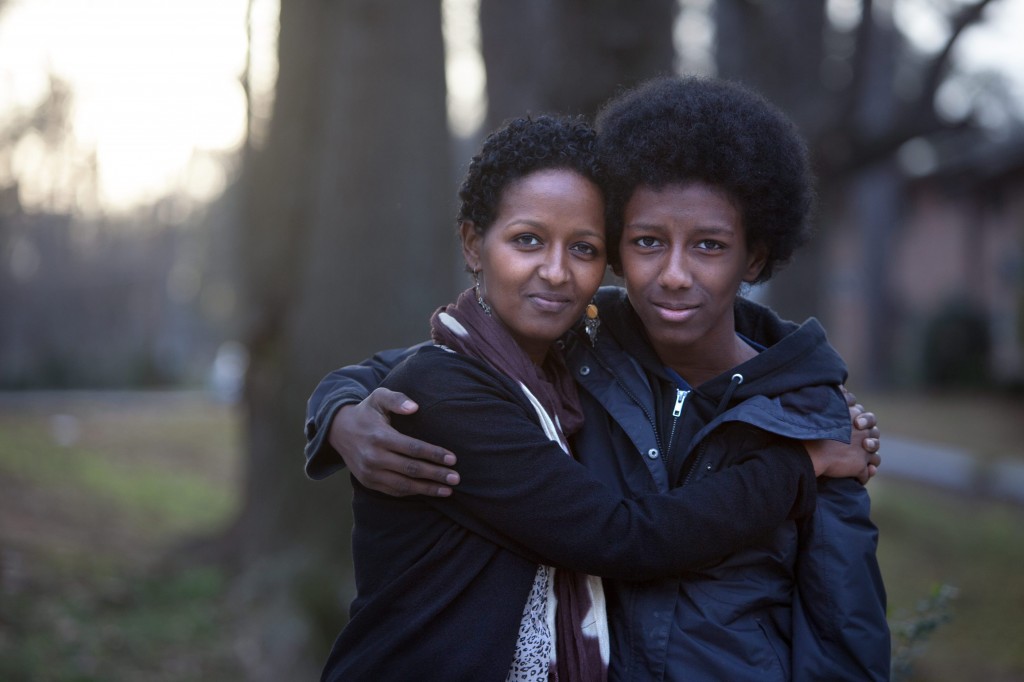
Photo by UNHCR/E.Hockstein/2013.
Naima’s uncle was murdered in Ethiopia for his involvement in the Oromo movement, her parents fled to Kenya as political refugees. Growing up in Kenya, Naima and her three siblings could not tell anyone they were refugees. It became a family secret, and they always had a fear of being caught. When Naima was 10 years old her family was resettled in San Jose, California, with the help of the IRC. Since Naima was initially the only one who spoke English, she became the family spokesperson and took on a lot of responsibilities at a young age. Eventually her family moved to Seattle and they all became U.S. citizens in 1996.
Today, Naima has worked as a caseworker at the IRC in Atlanta for five years. “I enjoy working with my clients,” she said, “I see my parents and I see myself in them.” Naima plans to focus on women’s health and well-being to empower refugee women to have a voice and educate them so they will learn to take care of themselves as their opportunities and responsibilities grow in America. “I think because of being a refugee I understand life in a completely different way. I still remember where we were, where I started, the house I lived. Today on this end I have everything at my fingertips. I have opportunities, especially as a woman, which I wouldn’t have had. I can make things happen for myself, whether I make it or not is all up to me.” “When I lived in Nairobi we would go downtown and UNHCR would give you a voucher for school uniforms and backpacks. We looked forward to that every year.”




